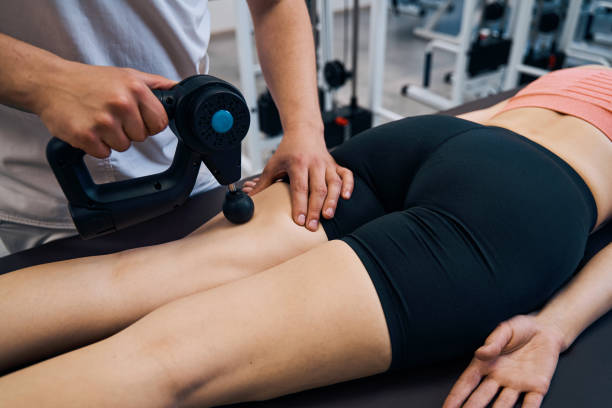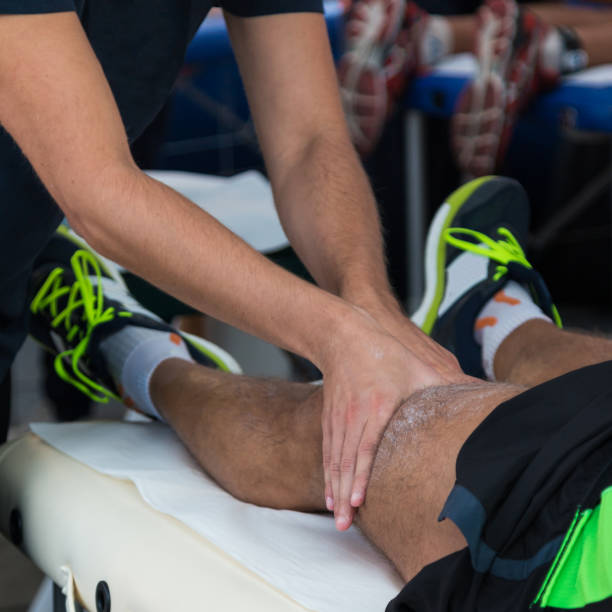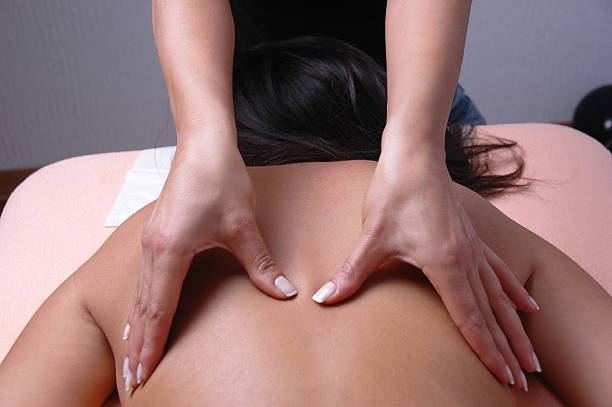Remedial Massage
Physiotherapy Today
Unlocking the Power of Remedial Massage
A Path to Health, Pain Relief, and Well-being
Remedial massage, often associated with therapeutic and holistic benefits, has become an essential treatment for people seeking relief from pain, muscle stiffness, and tension. More than a simple relaxation session, remedial massage is a focused therapy tailored to address specific injuries, chronic aches, and health conditions. As a part of comprehensive health care, it uses techniques that include deep tissue massage, sports massage, and soft tissue techniques, all geared towards enhancing well-being, rehabilitation, and pain management.
Understanding Remedial Massage
More Than Just Relaxation
Remedial massage is a specialized form of massage therapy aimed at healing damaged muscles, soft tissues, and other related structures in the body. Unlike relaxation massage, which primarily promotes relaxation, remedial massage is therapeutic and often targeted at specific health concerns. This therapy is particularly beneficial for those experiencing back pain, muscle tension, headaches, and other musculoskeletal issues.
Massage therapists who specialize in remedial treatments have a deep understanding of the body’s anatomy, allowing them to effectively address underlying issues rather than merely masking symptoms. Remedial massage therapists may use a variety of techniques, including trigger point therapy, deep tissue massage, and sports massage, to treat injuries, alleviate pain, and enhance physical function.
The Role of Deep Tissue and Sports Massage in Remedial Therapy
Two common approaches within remedial massage are deep tissue massage and sports massage. These techniques are beneficial in addressing muscle tensions and improving mobility, particularly for individuals who lead active lifestyles or are in need of rehabilitation following an injury.
Deep Tissue Massage
This technique focuses on the deeper layers of muscles and connective tissue. Using slow, firm strokes, the massage therapist aims to relieve chronic tension, stiffness, and pain. Deep tissue massage is highly effective for addressing areas of intense pain, such as back pain and chronic headaches. Targeting deep layers helps to release knots and break down scar tissue, promoting better circulation and faster recovery.


Sports Massage
As the name suggests, sports massage is a form of massage therapy designed for athletes and active individuals. Its purpose is to prepare the muscles for peak performance, reduce muscle soreness after activity, and prevent injury. Through targeted soft tissue techniques, sports massage can reduce the risk of injury and aid in faster recovery, which is essential for people who engage in regular exercise and physical activities
Benefits of Remedial Massage for Health and Well-being
Remedial massage provides a variety of health benefits beyond physical relief. Its holistic approach helps improve both mental and physical health, benefiting health care and well-being in significant ways:
Pain Management
Remedial massage helps to alleviate aches and pains related to chronic conditions such as arthritis, fibromyalgia, and muscle tension. The massage therapist can apply trigger point therapy and other specific techniques to release tension in targeted areas, easing pain management for people with chronic ailments.
Rehabilitation and Injury Prevention
Remedial massage therapists play a vital role in rehab and rehabilitation programs for people recovering from injuries. The tailored treatments target affected areas, reducing stiffness and increasing flexibility, helping patients return to full function more quickly.
Stress Relief and Mental Health
Therapeutic massage has a profound effect on mental health. The calming effect of the treatment reduces stress hormones and promotes relaxation, helping to ease tension and emotional strain. This relaxation encourages mental clarity and supports better overall health.
Enhanced Circulation
Remedial massage improves blood flow, which increases oxygen and nutrient supply to the tissues. This not only helps in speeding up recovery for sore muscles but also boosts overall well-being by supporting vital body functions.
Improved Flexibility and Mobility
The techniques used in remedial massage can improve muscle flexibility and joint mobility, which is particularly important for older adults or people recovering from injuries. Techniques like trigger point therapy and soft tissue techniques help to release tension and improve the range of motion, making it easier to move without discomfort.
Techniques Used in Remedial Massage Therapy
Remedial massage is highly versatile and can be adapted to meet the needs of each patient. Some of the most commonly used techniques include:
Conditions Treated by Remedial Massage
Back Pain and Headaches
Tension in the back and neck often contributes to chronic headaches and migraines. Through targeted massages, the massage therapist can relieve the underlying muscle tension and improve the overall alignment of the spine.
Sports Injuries and Muscle Strain
Athletes and active individuals benefit from remedial massage as it reduces muscle soreness, prevents injuries, and aids in faster recovery. Sports injuries like sprains, strains, and tears can all be effectively managed through therapeutic massage.
Stress and Anxiety
The calming effect of therapeutic massage lowers stress and anxiety levels, enhancing mental health and promoting a sense of relaxation.
Arthritis and Joint Pain
By improving circulation and reducing inflammation in affected joints, remedial massage can alleviate symptoms of arthritis and other joint conditions, supporting better mobility and reducing pain.

Choosing the Right Massage Therapist and Clinic
Selecting the right remedial massage therapist and clinic is crucial to ensure effective treatments. When searching for a reputable clinic, consider factors such as the therapist’s experience, specialization, and approach to alternative therapy. Reputable clinics often have qualified professionals who understand both anatomy and the various techniques essential to massage therapy. Sportsmed clinics, for example, may offer specialized physio and physiotherapy services for injury rehabilitation alongside massage therapy, ensuring comprehensive care.
Integrating Remedial Massage into a Self-Care Routine
As part of a self-care routine, remedial massage can greatly enhance well-being and quality of life. Regular sessions with a massage therapist can help in maintaining physical flexibility, preventing chronic pains, and providing a dedicated time for relaxation. Individuals dealing with persistent pain or aches due to work, sports, or daily stress will find this therapy beneficial in supporting both mental and physical health. Additionally, remedial massage therapists can provide guidance on maintaining mobility and reducing tension through home exercises and stretches, complementing the benefits of in-clinic treatments.






